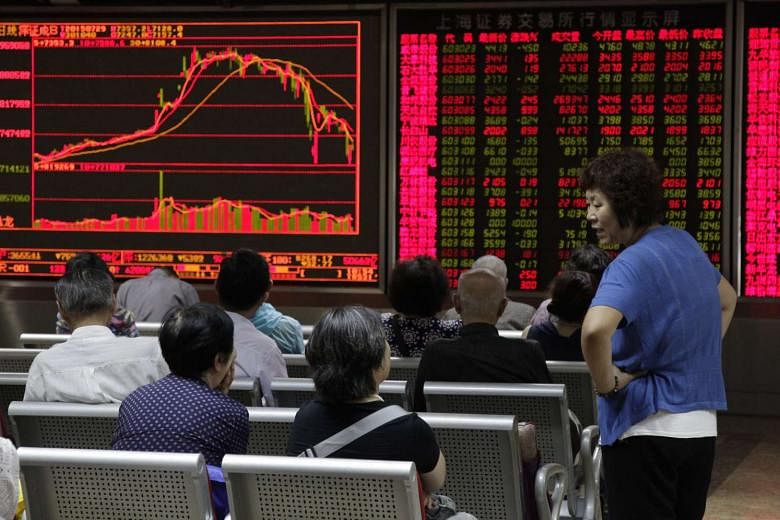SHANGHAI (REUTERS, BLOOMBERG) - Chinese banks have been investigating exposure to the stock market via wealth management products and loans collateralized with stocks, the China Securities Journal reported on Thursday, citing unidentified bank officials.
An executive of a bank told the newspaper that the lender's headquarters launched the investigations in late June.
China stocks were mixed on Thursday after the report. The CSI300 index fell 0.2 per cent to 3,924.23 points at 1:48 GMT, while the Shanghai Composite Index lost 0.2 per cent to 3,782.39 points. The CSI300 banking subindex was down 0.8 per cent.
The Hang Seng index added 0.9 per cent, to 24,849.70 points. The Hong Kong China Enterprises Index gained 0.6 per cent, to 11,342.57.
The benchmark Shanghai Composite rebounded in the last hour of trading on Wednesday to close 3.4 per cent higher. The rally came amid signs of waning interest by retail investors and margin traders, with trading volumes halving from their peaks in June and margin debt dropping to a four-month low.
Beijng has taken unprecedented measures to stop the rout that wiped out almost US$4 trillion (S$5.48 trillion) of market value, including allowing hundreds of companies to suspend trading, banning major shareholders from selling and arming a state-run financing vehicle with more than US$480 billion to support the market. While state funds have been tasked with buying shares, margin traders are cashing out.
The outstanding balance of loans backed by share purchases fell by 0.6 per cent to 881.7 billion yuan (S$195 billion) on the Shanghai Stock Exchange on Wednesday, according to bourse data. That was the lowest level since March 16.
The drop in margin debt "means people are trying to get out of their positions," said Michael Every, head of financial markets research at Rabobank Group in Hong Kong.
"And if the market doesn't drop, it suggests the PBOC (People's Bank of China) is doing the buying. It seems they are in the market, just not everywhere at once. Usually at the end of the day, and where they seem to think it's needed most."

